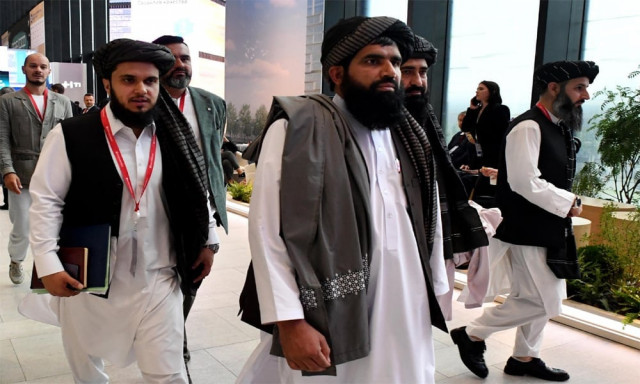Taliban praise UN-led talks on Afghanistan despite exclusion of women
Rights groups criticise decision to exclude civil society from meetings in compromise to encourage govt participation

The Taliban government praised on Wednesday the “spirit of cooperation” towards Afghanistan in UN-led talks that excluded women from the country.
Two days of meetings on Afghanistan ended in Doha on Monday, marking the first time Taliban authorities were included in the talks attended by United Nations officials and international special envoys.
Rights groups strongly criticised the UN decision to exclude civil society groups from the main meetings, in a compromise made to encourage the Taliban government’s participation.
Foreign officials “had a good spirit of cooperation vis-a-vis Afghanistan and we could see that their policies for Afghanistan have positively changed”, Taliban government spokesman Zabihullah Mujahid told a news conference in Kabul.
“Afghanistan has come out of isolation” and “an atmosphere of trust has been created”, he added. The Doha talks were the third since the Taliban surged back to power in 2021.
Read: Pakistan, Afghan Taliban hold face-to-face talks on TTP
They were not invited to the first round and refused to attend the second, insisting on being the only Afghan representatives to the exclusion of civil society groups, including women’s organisations.
“As this meeting was organised as per Afghanistan’s demands and in consideration of our national interests, we were able to participate and to inform the world of our position,” Mujahid said.
The international community has wrestled with its approach to the Taliban since they returned to power, with no country officially recognising its government.
Some believe the Taliban government should be isolated until they wind back curbs on women and girls. Others argue engagement on other topics should be dialled up in a bid to build dialogue.
“We told the countries that Afghanistan’s internal issues – issues related to its people and women – are Afghanistan’s issues,” Mujahid said. “It should not be used for countries to apply political pressure.”
This round of Doha talks centred on efforts to bolster Afghanistan’s private sector and support counter-narcotics work in a country that has historically been the largest producer of opium. The process was launched to discuss increasing and coordinating engagement with Afghanistan.
Read More: UN urges Taliban to include women in public life at Doha talks
The UN was criticised for only including civil society organisations, including women’s rights groups, at separate meetings the day after the official talks.
Rights groups warned that the sidelining of Afghan women would legitimise policies imposed by the Taliban authorities which the UN has characterised as “gender apartheid”. But the European Union’s special envoy to Afghanistan, Tomas Niklasson, said making concessions to Taliban authorities allowed for “good discussion” with all parties in Doha.
“To have the opportunity to talk with the Taliban, and they came, and to talk with these individuals, civil society, private sector, and they came… I think this was worth it”, he told AFP on Tuesday.



















COMMENTS
Comments are moderated and generally will be posted if they are on-topic and not abusive.
For more information, please see our Comments FAQ